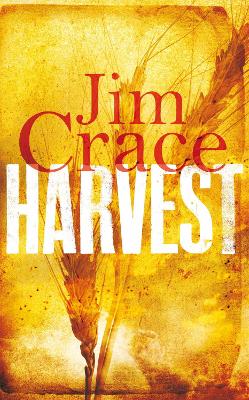Reviewed by Michael @ Knowledge Lost on
Jim Crave uses the tragedies, pillaging and other disruptions in an effort to evoke the effects of England’s fields being irrevocably enclosed. I never really knew when this book was set but upon researching the Enclosure Acts I’ve since found that this novel is most likely set sometime between 1750 and 1860. This Act basically removed the existing rights the locals had to carry out activities like cultivation, cutting hay, grazing animals, using other resources such as small timber, fish, and turf.
While some people saw these acts as the building blocks to a capitalist future, others thought of this as an attack on the peasantry. You know the old complaint, parliament are only looking after the major landowners; the rich get richer. Sometimes the enclosures were carried out with force and extreme measures were used.
In Harvest we read about a pastoral idyll as it starts to unravel with the major changes in land rights. Jim Crave’s look on the subject is done in an interesting way; I didn’t read this book as a depiction of changes in land rights. I read this as a community so cut off from the rest of the world that it started imploding as soon as outsiders were introduced. Sure, the whole point of the book was the Enclosure Acts; my brain just took a different direction.
While this book felt a little dark, like life was harsh and cruel; all the things I enjoy in a novel, it just didn’t feel right. I felt the grittiness and yet I felt a little bored and disappointed by Harvest. I’m not sure if it was a problem with the novel, I felt like I was in a reading slump and I was forcing myself to complete the book before I needed to return it to the library.
Then again, the first impression is often the correct one. I spent a lot of time thinking if this was a problem with the novel or a problem with me at the time. In any case, it doesn’t matter, I didn’t enjoy it and I’m not sure revisiting it later will change my mind. Well written with the normal historical fiction tropes, but I felt like the novel dragged on. This should have been catnip for me but I just couldn’t find a connection.
This review originally appeared on my blog; http://literary-exploration.com/2013/11/20/book-review-harvest/
Reading updates
- Started reading
- 4 November, 2013: Finished reading
- 4 November, 2013: Reviewed
